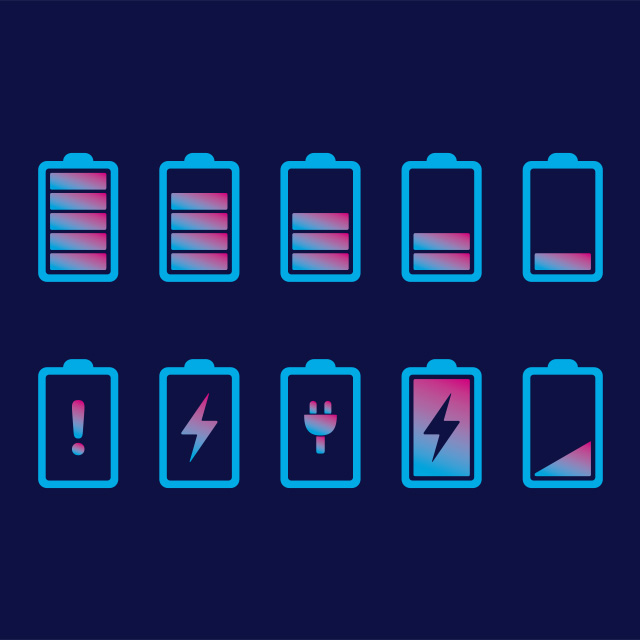How to extend the battery life of UPS
Author: FSP Group
UPSs - or uninterruptible power supplies - are critical pieces of infrastructure designed to keep your electrical equipment running smoothly, regardless of the status of your mains supply. However, they still rely on battery technology. And, as such, they can't supply power indefinitely in the event of an outage.
- Test Your Batteries Regularly
- Keep Your Batteries In The Correct Temperature Range
- Reduce The Number Of Discharge Cycles
- Store Batteries In A Cool, Dry Place
- Install Power Saving Devices
- How can the use of UPS reduce premature battery aging?
There are many reasons for shortened UPS battery life. These include:
- Storing UPS devices poorly in a way that degrades their ability to hold charge
- Keeping them at high temperatures
- Cycling them too many times by calling on their services regularly
- Charging them using the incorrect voltage
- Using the wrong type of battery: most UPS systems only need to supply power for short bursts, affecting the type of cell chemistry they use
For this reason, many individuals and organizations are interested in how they can extend the life of their UPS batteries. Longer runtimes allow you to better accommodate both blackouts and brownouts.
Test Your Batteries Regularly
Most commercially-available UPS products use either lithium-ion, nickel-cadmium, or lead-acid batteries. Each chemistry offers advantages and disadvantages. But ultimately, all of them degrade, reducing battery performance.
It is critical, therefore, to conduct regular battery testing. By checking batteries for charge and other parameters, you can ensure that they run for as long as their runtime specifies. Some units, such as the Champ 1k/2k/3k and Champ RM 6k/10k provide displays that show you UPS status.
The best battery test for UPS systems is the impedance test. You do this by applying an AC signal and then measuring the AC voltage loss across the length of the battery. Doing this lets you calculate the impedance - the degree of voltage loss across the battery - using Ohm's law. The more impedance a battery displays, the lower its capacity, and the more likely it needs replacing.
Keep Your Batteries In The Correct Temperature Range
Batteries rely on chemical substrates to transfer ions from one material to another, thereby releasing electrons to form a circuit. For that reason, most cells have an optimal temperature range - a point along the curve where reactions take place most smoothly. Falling outside of this range could lead to poor performance, lack of voltage, and even premature damage to the internal structure of the cell.
Here are some of the optimal ranges for different cell chemistries:
- Lithium-ion: 15C - 35 C
- Nickel-cadmium: 0 - 30C
- Lead-acid: 20C - 25 C
Some battery chemistries have a greater operating range than others. For instance, lithium-ion will work well between 0 C and 45 C. And nickel-cadmium can work at temperatures as low as -60C.
Lead-acid batteries, however, are more temperamental. Estimates suggest that every 8 C rise above 25 C halves the life of the cell.
Reduce The Number Of Discharge Cycles
Manufacturers state the battery cycle life, telling you how many times you can charge and discharge their products before they degrade. All currently-available cells have a fixed lifetime - say, 500 cycles - because the process of charging and discharging them leads to physical changes within the cell itself. Microscopic dendrites - needle-like arms - grow out from the anode and into the liquid electrode. Over time, these cause short circuits and reduce the capacity of the battery, even when fully charged.
UPS unit owners, therefore, often look for ways to reduce the number of times that a battery will discharge. Most cells only discharge during blackouts - an infrequent event. But if you have issues with your cabling (such as water damage), your UPS may need to kick in repeatedly. And that could wear out the battery faster.
If you notice that you keep activating your UPS, you may need to hire electrical engineers to test for the source of the problem and fix it.
Store Batteries In A Cool, Dry Place
Many organizations and individuals like to keep both UPS units and spare cells on their premises to provide backup power capacity, should they need it. However, if you do not store batteries at the correct temperature, then it may degrade the internal chemistry.
Lead-acid batteries, as noted, are highly susceptible to increases in temperatures over 25 C, with every 8 C increase in heat cutting the survival of the cell in half. So keeping them in a hot room could harm their battery cycle life.
Airflow is also important when storing batteries. Never pack them tightly into boxes. Instead, leave around two inches on all sides for air to flow freely. Try to temperatures below 10 C.
Lastly, make sure that you keep them in a dry environment. Water and humidity can infiltrate cells, cause corrosion, and lead to a reduction in the lifetime of the device.
Install Power Saving Devices
Let’s say that a blackout occurs which activates your UPS to power all your equipment. If you use appliances and lighting, then the battery will run down quickly, and you will need to restore mains power to keep your equipment running.
However, if you install energy-saving equipment, you lower the draw on your UPS (and your energy bills at the same time). LED lighting options can save up to 75 percent on energy usage compared to regular incandescent bulbs, dramatically reducing the burden on the battery. Furthermore, some UPSs, such as the Champ RM feature ECO mode for energy saving.
How can the use of UPS reduce premature battery aging?
UPS units can prevent the premature aging of batteries by providing information about their status.
Temperature and cycling frequency are the two main characteristics that determine cell longevity. UPS systems that provide read-outs can update users on the current burden of their batteries and whether they should change their operating conditions.
UPS parameter setting is also a tool that you can use to determine whether anything is one of the ordinary. By sending parametric data to a monitoring center, UPSs allow remote or local teams to detect changes in the power supply and determine whether there are any problems they need to address. Users can combine UPS systems with dashboards and apps, providing an intuitive interface through which to find and correct any battery-related issues. For companies, it means less time managing IT equipment and lower risk.
Related Articles
About FSP
FSP Group is one of the global leading power supply manufacturer. Since 1993, FSP Group has followed the management conception “service, profession, and innovation” to fulfill its responsibilities as a green energy resolution supplier.







